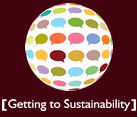The City of Melbourne has been certified carbon neutral as part of its undertaking to become one of the world’s most sustainable cities.
Environment Portfolio Chair Councillor Arron Wood said certification by Low Carbon Australia against the National Carbon Offset Standard (NCOS) was a solid demonstration of the City of Melbourne’s commitment to a more sustainable Melbourne.
“We’re already one of the world’s most liveable cities, our challenge now is to ensure we are one of the world’s most sustainable cities,” Cr Wood said.
“As part of our work we’re delivering new waste management solutions, upgrading several of our council buildings by installing efficient heating, cooling and water systems and making improvements to Melbourne Town Hall which will result in significant savings in lighting costs.”
“We built Australia’s first six-star green star new office design building – CH2 – which is now leading the way in environmentally sustainable design. But our commitment to sustainability doesn’t end there.”
Cr Wood said Council was also working with the city’s commercial building owners and high-rise apartment residents to reduce water and energy usage and better manage waste and recycling.
“We are helping commercial building owners upgrade their buildings with energy efficient technologies through our 1200 Buildings program and unlocking funds through Environmental Upgrade Agreements.
“In our efforts to be smarter about the way we capture and use water, we have undertaken extensive work to install stormwater tanks for our parks and improve irrigation.”
The City of Melbourne is further encouraging its residents to take up a lower-carbon lifestyle by extending its bike network and encouraging walking and use of public transport.
Low Carbon Australia’s CEO Meg McDonald said City of Melbourne’s carbon neutrality demonstrated a remarkable milestone in its journey towards sustainability and she looked forward to witnessing it achieve its aspirational target of Zero Net Emissions by 2020.
“Global leading cities like City of Melbourne are responsible for an extraordinary range of economic activities and services and are critical to our move to a low carbon future,” she said.
“Quantifying the carbon footprint of such an organisation and reducing carbon emissions is a mammoth task, but one that can have substantial benefits for the environment, the city and for ratepayers.
“Councils taking this type of leadership position are important in showing the way in their communities for a prosperous low carbon future.
“In efforts to reduce carbon emissions, the City of Melbourne is also working to ensure it operates more efficiently, reducing wastage and encouraging more sustainable business practices.”
About the Carbon Neutral Program Low Carbon Australia provides financial solutions and advice to Australian business, government and the wider community to boost investment in energy efficiency, cost-effective carbon reductions, and clean technology.
Low Carbon Australia Limited is the Australian Government’s official certifier of carbon neutrality. Low Carbon Australia’s Carbon Neutral Program is a voluntary scheme for Australian organisations seeking carbon neutrality for their whole organisation, part of their organisation, an event, product or service.
Certification is against the National Carbon Offset Standard (NCOS), which provides integrity through its guidance on genuine voluntary offsets and its minimum requirements for calculating, auditing and offsetting a carbon footprint to achieve carbon neutrality.
To be carbon neutral means that the net emissions association with a product, service, event or an organisation’s activities are equal to zero. For an organisation, service, event or product to become carbon neutral, best practice requires an organisation to: 1. Measure its carbon footprint; 2. Reduce emissions; and 3. Offset any residual emissions
The combined efforts of Carbon Neutral Network members have resulted in more than 1 million tonnes of carbon emissions being avoided each year.
The network features some of Australia’s leading corporate names including Qantas, Virgin, ANZ, NAB, PwC, CBRE, Australian Paper, The Merino Company, GPT and DEXUS.
For more information see www.lowcarbonaustralia.com.au
Check out Melbourne city’s 1200 Buildings initiative to reduce the impact of the CBD’s environmental impacts. 1200 buildings representes two thirds of the city’s building stock.
